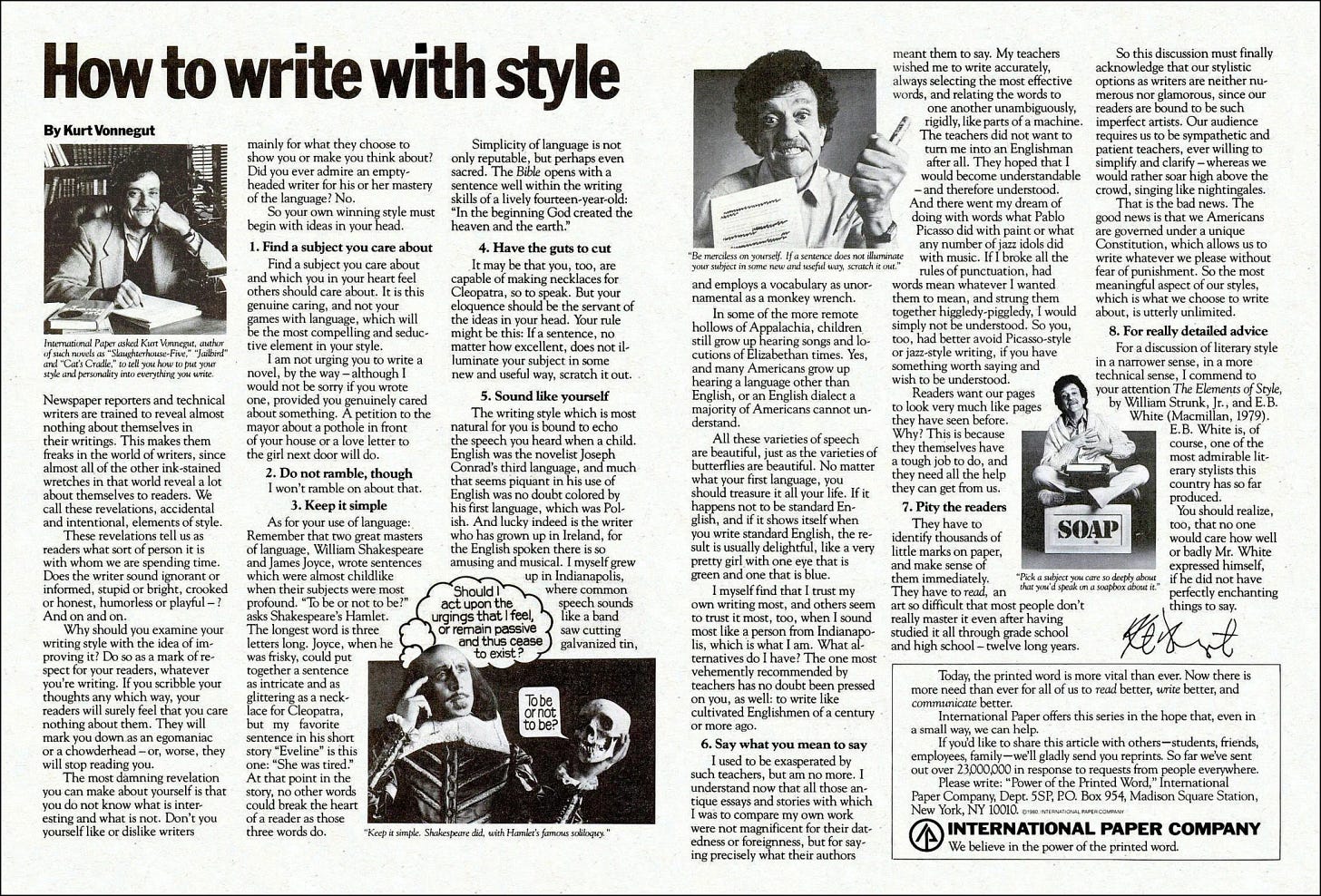Pity the Reader
My Pledge to You
In 1980, the International Paper Company sponsored an advice series in the New York Times.1 The company claims to be the largest pulp and paper company in the world, and dates back to the late 1800s. The advice series was published under the company’s tag-line: We believe in the power of the printed word.
The series elicited a well-known expert on a range of topics, and the writer Kurt Vonnegut was chosen to compose advice on: How To Write with Style.
It includes general advice for writing anything and offers seven numbered “rules.” I will do my best right now to adhere to rule number two: “Do not ramble, though.”
Pity The Readers
Vonnegut’s seventh rule is “Pity the readers”:
[Readers] have to identify thousands of little marks on paper, and make sense of them immediately. They have to read, an art so difficult that most people don’t really master it even after having studied it all through grade school and high school — twelve long years.
Coming from a family directly impacted by dyslexia, and working with the Sopel Foundation for Dyslexia, my understanding of those “marks on paper,” has evolved from my early childhood experience as a voracious reader who, according to my mom, taught myself how to read.
Those “marks on paper” are just symbols, not the experience itself. They represent sounds and require deciphering. “They are a system of notation for the silent music of reading.”2 But, human beings have not actually been reading for very long, and it took roughly 3,400 years from the time of the first known alphabet to the time that ordinary people were enabled to read ‘marks on paper.’
Not everyone’s brains function well at deciphering letters arranged on paper. Dyslexia is neurological, “often genetic, and has nothing to do with intelligence or instruction.” Twenty percent of school-aged kids are thought to be dyslexic, and only twenty to thirty percent of them get diagnosed. They struggle, usually feel isolated, and often slip through the cracks, or give up on trying to learn at school.
My point is, that I agree with Kurt Vonnegut in calling reading an “art.” You are not born with it. You must learn how to do it, and “as with any art, you can keep gaining skill and pleasure in it for the rest of your life.”
I am grateful for your time and attention, and my pledge to you is that I will never take those two things for granted.
As always, thanks for reading.
https://archive.org/details/internationalpaperads/mode/2up
From Pity The Reader - On Writing With Style by Kurt Vonnegut & Suzanne McConnell, p.38





